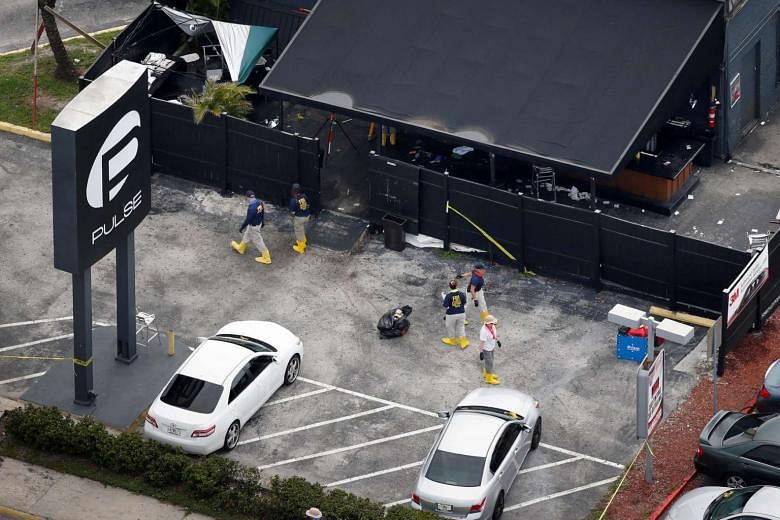WASHINGTON • The biggest question raised in the aftermath of the Orlando shooting - as it was after the Boston Marathon bombing in 2013 and the shooting in Garland, Texas, last year - is why the perpetrator's behaviour was alarming enough to attract the attention of the Federal Bureau of Investigation (FBI), but could not be stopped.
The answer is in part a reflection of American vigilance in the era of "see something, say something".
Thousands of investigations are opened and closed.
Right now, the FBI is investigating 1,000 potential "home-grown violent extremists", the majority of whom are most likely tied to or inspired by the Islamic State in Iraq and Syria (ISIS). Fifty to 100 are considered the highest priority.
The flood of leads is so relentless that, years ago, counter-terrorism agents hung an 18-inch section of fire hose outside their office suite in Northern Virginia as a symbol of their mission.
Intelligence agencies in Europe and the Middle East face similar challenges, particularly with the rise of ISIS. But in the United States, Americans enjoy the unique protections of the First and Second Amendments. Criticising, or even hating, the US government is not a crime. Neither is declaring support for ISIS or buying a gun.
In Omar Mateen's case, co-workers said in 2013 that he had boasted of ties to terrorist groups Hizbollah and Al-Qaeda. But government officials said his claim had been dubious from the start. Hizbollah is a Shi'ite group while Al-Qaeda is Sunni.
FBI agents secretly followed Omar and monitored his movements. They interviewed him twice, and dispatched an informant to get close to him in an investigation that spanned nearly a year.
They eventually closed the investigation and FBI supervisors approved the decision.
Officials said there was nothing particularly remarkable about the decision - until the pre-dawn shooting.
"I think the FBI has an incredibly hard job, because this guy seems like a lone wolf," said Ms Caroline Fredrickson, president of the American Constitution Society.
This dilemma is not new, but it has become more acute in recent years. For years after the 2001 attacks on the World Trade Center and the Pentagon, the FBI used Al-Qaeda's rigid hierarchy against the terrorist group.
Government experts knew how plots were hatched and who approved them. They knew the terrorism pedigree of the key figures, and monitored travel to watch for people training in camps.
Today, however, ISIS encourages anyone to take up arms in its name. Travel and training are unnecessary.
Veteran counter-terrorism agents ruefully note that the difference between America's latest school shooting and its latest terrorist attack is whether the gunman praised ISIS - regardless of whether he had any actual ties to the group.
Preventing those attacks is a fundamentally different mission, said Mr James McJunkin, a former senior FBI official.
"It's the counter-terrorism equivalent of 'How do you prevent someone from robbing a liquor store?' " he said.
NEW YORK TIMES

